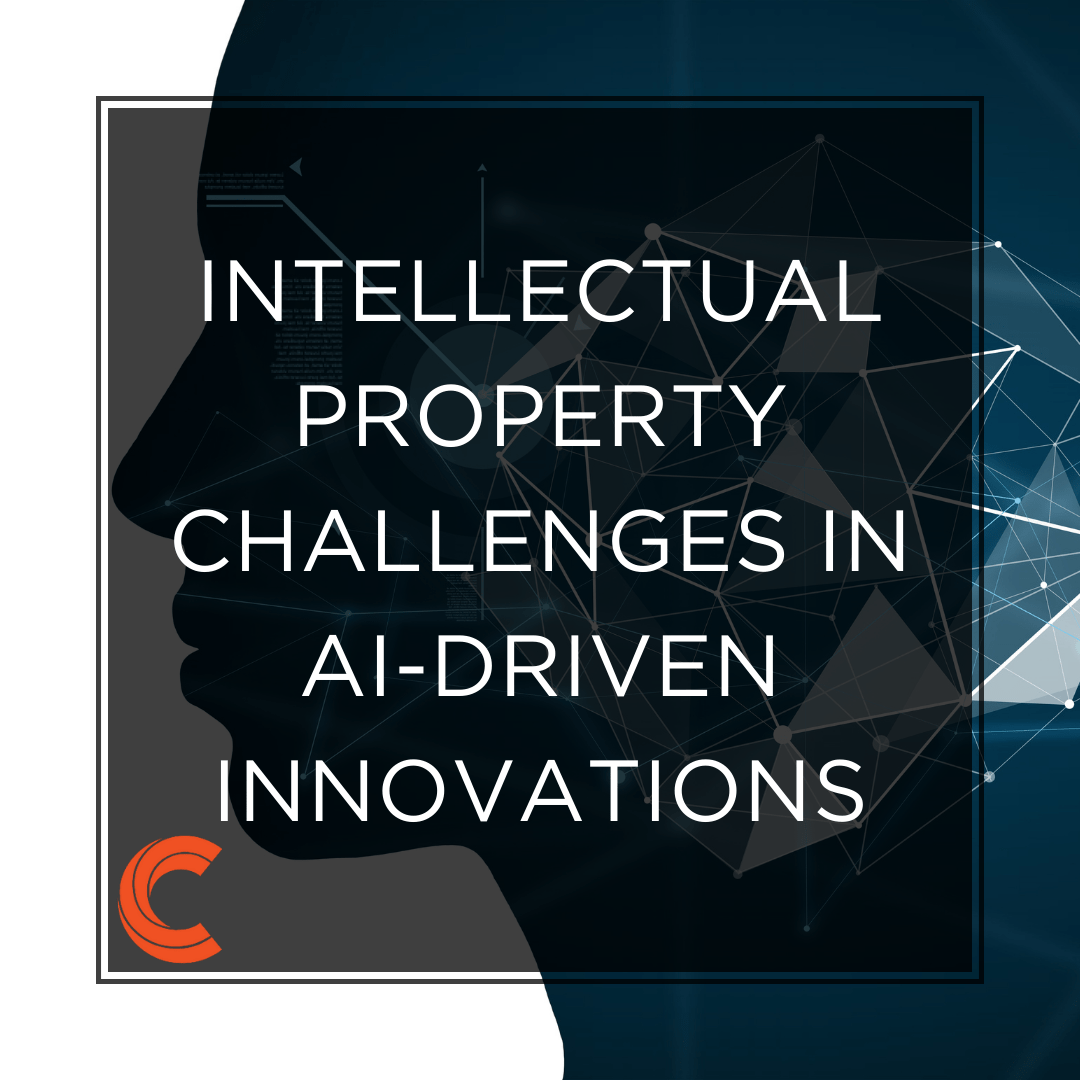AI is rapidly transforming how businesses innovate, offering new ways to create and enhance products and services. However, as AI-driven innovations rise, so do the challenges of protecting intellectual property (IP). Traditional IP laws were not designed with AI in mind, leading to complex legal questions. This blog post explores the key IP challenges associated with AI-generated inventions and creations, highlighting the importance of securing legal counsel to safeguard your business’s innovations.
The Rise of AI in Innovation
AI is increasingly being used to drive innovation across industries. From generating new product designs to creating original content, AI systems can now perform tasks that were once exclusive to human creativity. While these advancements open up new opportunities, they also create unique challenges for IP protection.
The Challenge of Patenting AI-Generated Inventions
One of the most significant IP challenges in AI-driven innovation is patenting AI-generated inventions. Traditionally, patents are granted to human inventors who create something novel and non-obvious. However, when an AI system generates an invention, determining who should be credited as the inventor becomes unclear. Current patent laws generally require a human inventor, leading to legal uncertainties.
In some jurisdictions, there have been attempts to recognize AI as an inventor, but this is still a developing area of law. Businesses using AI for innovation must carefully consider how to protect their AI-generated inventions. Legal counsel can help navigate these challenges and ensure that your business’s IP is adequately protected.
Copyright and AI-Generated Works
AI is also being used to create original works, such as music, art, and literature. However, copyright protection for AI-generated works presents another legal grey area. Copyright law typically protects works created by human authors. When an AI system generates content, it is unclear whether the copyright should belong to the AI’s creator, the user, or if the work should even be eligible for copyright protection.
These challenges are particularly relevant in industries where AI-generated content is becoming more common. Companies using AI to create original works must consider how to protect their creations from infringement. Consulting with IP experts is crucial to developing strategies that safeguard AI-generated works within the existing legal framework.
Trade Secrets and AI Algorithms
AI algorithms themselves can be valuable intellectual property, often protected as trade secrets. However, maintaining the secrecy of these algorithms is challenging, especially as AI systems become more complex and widely used. Businesses must implement robust security measures to prevent unauthorized access to their AI technologies.
Additionally, businesses should consider the risks associated with sharing AI technologies with third parties. When collaborating with others, it is essential to use non-disclosure agreements (NDAs) and other legal protections to prevent the misappropriation of trade secrets.
Legal Strategies for Protecting AI-Driven Innovation
Given the complexities of protecting IP in AI-driven innovations, businesses must adopt a proactive approach. Here are some strategies to consider:
- Patent Applications: Work with legal experts to assess whether your AI-generated inventions qualify for patent protection. Even if AI cannot be listed as the inventor, a human collaborator may still be able to secure a patent.
- Copyright Strategies: Develop clear policies regarding the ownership of AI-generated works. Ensure that contracts with AI developers and users explicitly address copyright ownership and licensing rights.
- Trade Secret Protections: Implement strong cybersecurity measures to protect your AI algorithms and related data. Use NDAs and other contractual agreements when sharing AI technologies with third parties.
- Legal Counsel: Engage with legal professionals who specialize in IP law and AI. They can provide guidance on navigating the evolving legal landscape and help secure your business’s innovations.
Conclusion
As AI continues to drive innovation, businesses must be prepared to address the intellectual property challenges that arise. The traditional IP framework does not fully account for the complexities of AI-generated inventions and works. However, with the right legal strategies, businesses can protect their innovations and maintain a competitive edge.
At Carbon Law Group, we understand the unique challenges that AI-driven innovations present. Our team of experienced IP attorneys can help your business navigate these challenges and ensure that your intellectual property is secure. Contact us today to learn how we can assist you in protecting your AI-driven creations.





